I found a very strange behaviour when design my ALU, hope someone can have a look it and tell me what is going on.
Here is the code
module adder (
output logic signed[31:0] y,
output logic Cout,
input logic signed[31:0] a, b,
input logic Cin, sub
);
logic [31:0] adder_b;
assign adder_b = b ^ {32{sub}};
assign {Cout, y} = {a[31],a} + {adder_b[31],adder_b} +Cin;
endmodule
////////////////////////////////////////////////////
////////////////////////////////////////////////////
////////////////////////////////////////////////////
module andlogic (
output logic [31:0] y,
input logic [31:0] a, b
);
assign y = a & b;
endmodule
////////////////////////////////////////////////////
////////////////////////////////////////////////////
////////////////////////////////////////////////////
module orlogic (
output logic [31:0] y,
input logic [31:0] a, b
);
assign y = a | b;
endmodule
////////////////////////////////////////////////////
////////////////////////////////////////////////////
////////////////////////////////////////////////////
module xorlogic (
output logic [31:0] y,
input logic [31:0] a, b
);
assign y = a ^ b;
endmodule
///////////////////////////////////////////////////
///////////////////////////////////////////////////
///////////////////////////////////////////////////
module ALU(
output logic signed[31:0] Result,
output logic N,Z,C,V,
input logic signed[31:0] a, b,
input logic [2:0] ALU_control
);
wire [31:0] adder_rlt, and_rlt, or_rlt, xor_rlt;
logic Cin;
adder adder (
.y (adder_rlt),
.a (a),
.b (b),
.Cin (Cin),
.Cout (Cout),
.sub (sub)
);
andlogic andlogic (
.y (and_rlt),
.a (a),
.b (b)
);
orlogic orlogic (
.y (or_rlt),
.a (a),
.b (b)
);
xorlogic xorlogic (
.y (xor_rlt),
.a (a),
.b (b)
);
assign C = Cout;
assign sub = ALU_control[1];
assign Cin = ALU_control[1];
assign N = Result[31];
//assign Z = (Result ==0 )? 1:0;
assign V = {{~a[31]} & {~b[31]} & Result[31]}|{a[31] & b[31] & {~Result[31]}};
always_comb
begin
if (Result == 0) Z = 1;
else Z = 0;
case(ALU_control)
3'b001: Result = adder_rlt;
3'b010: Result = adder_rlt;
3'b011: Result = and_rlt;
3'b100: Result = or_rlt;
3'b101: Result = xor_rlt;
default: Result = 0;
endcase
end
endmodule
The first 4 modules are individual functions of my ALU, the adder contains both addition and subtraction. Then here is the odd thing:
My ALU has 4 flags, Z represent Zero, it sets when the value of output Result is 0. If I use these code to describe the behaviour of Z
always_comb
begin
if (Result == 0) Z = 1;
else Z = 0;
The simulation result is wrong, Z some time is 1, and some time is 0, and it looks like not depend on the value of Result at all.
What is more odd is the result of the synthesis result. Here the picture shows a part of my synplify synthesis result.

The gate level looks like correct, Z is a AND gate of all inverted Result signals, which when Result == 0, the output Z should be 1.
However, I spend all my afternoon yesterday try to figure out how to fix this bug, I fount that if I use assign statement instead of using if statement, then the simulation gives correct behaviour. assign Z = (Result ==0 )? 1:0;
I thought this two version of describing Z should be same! After I modified my code by using
assign Z = (Result ==0 )? 1:0;
The synthesis result still same as the picture I showed above...
Can someone tell me what is going on? Thanks so much!!!